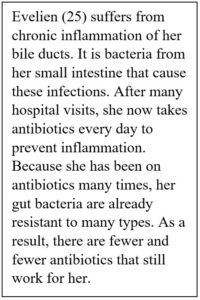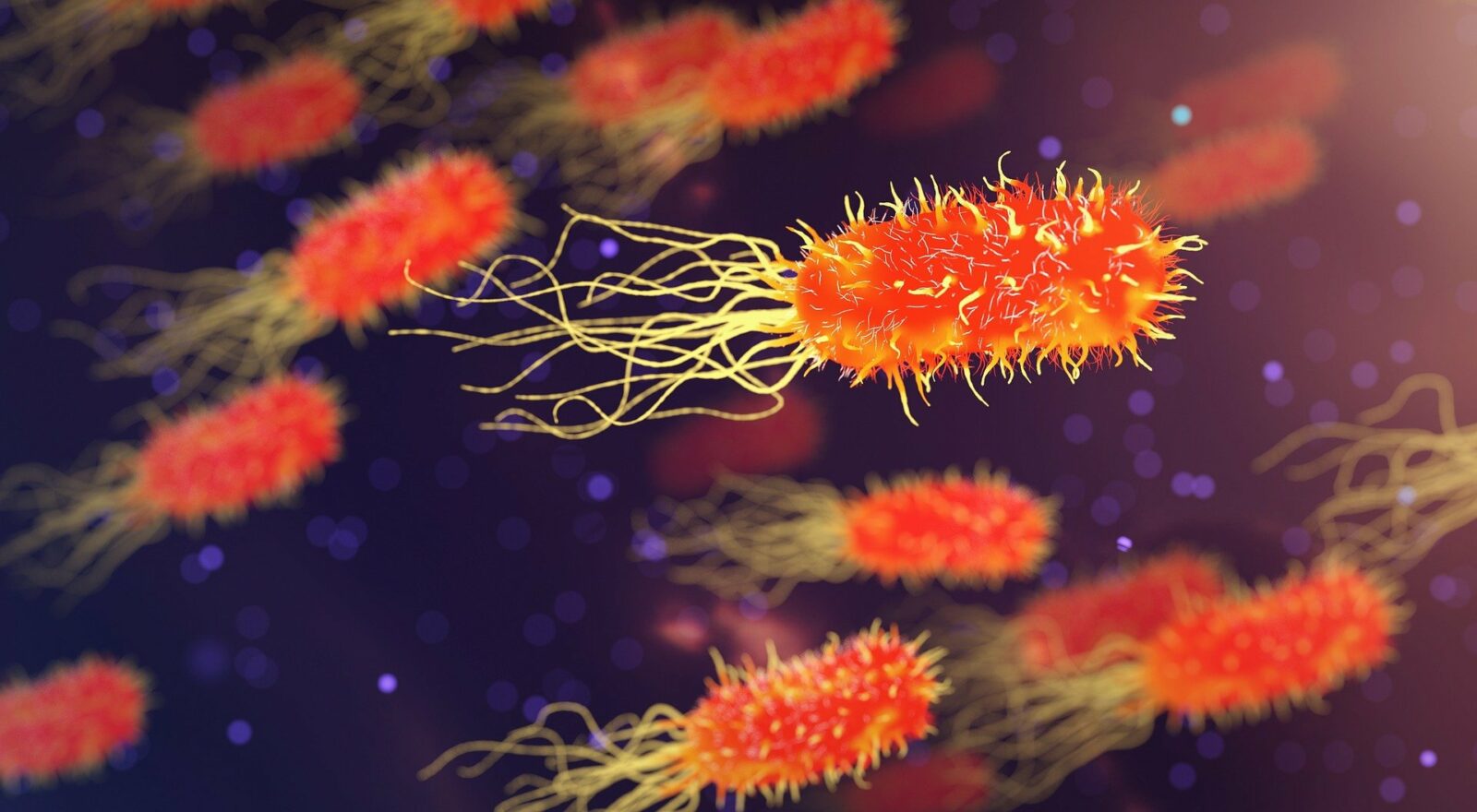Superbacteria
Resistance? Prevention!
To keep the problem of the future at bay
By: Eveline Meijers
21 October 2020
The World Antimicrobial Awareness Week is approaching: a worldwide campaign week of the WHO (World Health Organization). Under the slogan “Antimicrobials: handle with care”, the WHO tries to increase awareness and understanding about antibiotic resistance. Antibiotic resistance is an urgent and growing problem. Alternative treatments are under development, but they cannot be used on a large scale yet. It is therefore very important to prevent further growth of this problem.
The problem
The problem of antibiotic resistance is growing worldwide. Medicines work increasingly poorly because different bacteria are increasingly able to withstand antibiotics. This makes infections increasingly difficult to treat. In some cases, this can even be life-threatening. Usually one then turns to “last resort”. These are antibiotics that are only given when nothing else works, but bacteria are increasingly resistant to them. Alternative treatments, such as the poop transplant, are under development but are not yet widely used.
Evelien (25), unfortunately, has a lot of experience with antibiotic resistance. Like last June, when she became seriously ill from a simple infection in a wound on her lower leg. When two courses of antibiotics from the doctor turned out not to work, the inflammation had already developed so far that she was still in the hospital. Even there, she was given multiple types of antibiotics before one finally worked. “In the end, you will be 4.5 antibiotics further before you are helped with something as simple as inflammation in your lower leg. Then you start to think, what if I get serious pneumonia or meningitis? How often do I have to try antibiotics before there is one that works? ”
Like last June, when she became seriously ill from a simple infection in a wound on her lower leg. When two courses of antibiotics from the doctor turned out not to work, the inflammation had already developed so far that she was still in the hospital. Even there, she was given multiple types of antibiotics before one finally worked. “In the end, you will be 4.5 antibiotics further before you are helped with something as simple as inflammation in your lower leg. Then you start to think, what if I get serious pneumonia or meningitis? How often do I have to try antibiotics before there is one that works? ”
Cause
The WHO shares Evelien’s concerns about antibiotic resistance. Their webpage states that the goal of Awareness Week is to “prevent further outbreaks and spread of resistant infections”. Resistance develops when someone uses an antibiotic to fight infection. Sometimes that antibiotic does not kill all bacteria. The bacteria that can best withstand the antibiotics remain alive. Those “strong” bacteria will then multiply quickly, resulting in a lot of such bacteria. So the next time those bacteria cause an infection, they are much less sensitive to antibiotics.
This problem will become more common the more patients use antibiotics. Resistance is not (yet) very common in the Netherlands. In other countries, where antibiotics are used more often, resistance is a much bigger problem. So it is important not to use antibiotics too often. This applies to people, but also to animals. This plays a major role especially in livestock farming, where many animals live close together. Resistance in animals can also cause problems for humans. Leftovers of antibiotics in meat, for example, can cause resistance to develop more. A bacterium that has developed resistance in an animal can also be transferred to humans.
Prevention is better than cure
To keep this problem under control as much as possible, strict rules have been drawn up in the Netherlands. Two main directions can be distinguished here. The first main direction is to limit the number of infections. Of course, fewer infections also means less use of antibiotics. The second main direction is about the “correct” use of antibiotics, and only when really necessary. This gives the bacteria as little chance as possible to adapt to the antibiotics.
Good hygiene can already greatly reduce the number of infections. By keeping everything clean, bacteria can spread less, reducing the chance that they will end up in an open wound, for example. The corona crisis emphasizes the importance of hygiene once again. Wash your hands, sneeze into the elbow and disinfect your shopping cart: everything to prevent spread and contamination.
In addition to preventing infections as much as possible, it is important to use antibiotics “correctly”. This concerns, for example, use at the right time, not too high or too low a dose and especially not too often. “We follow the prescribed recipes carefully, wear gloves when preparing them and try to distribute the donations per day. For example, at 4x a day it is also given every 6 hours ”, says Mira van Straten *, a nurse at the Diakonessenziekenhuis in Utrecht. All healthcare providers in the Netherlands are therefore taught the correct use of medicines during their training from the Institute for Responsible Medication Use (IVM), an institute that is committed to improving medication safety in the Netherlands.
You can help too!
The measures discussed are primarily intended for healthcare providers and companies. But everyone, including you, can help prevent the problem of antibiotic resistance (check our Instagram post that comes online Tuesday for practical tips!). For example, pay attention to good hygiene. Wash your hands (with soap) after going to the toilet, but also before you start cooking. If you are on a course of antibiotics, follow the advice of your doctor. Most importantly, only use antibiotics when necessary. Or in Evelien’s words: “Just get out of the flu, don’t reach for those antibiotic pills every time. They do not work against a virus like the flu. I think you can already prevent resistance with that. ”
* This name has been changed at the request of the interviewee. The name is known to the editors.

